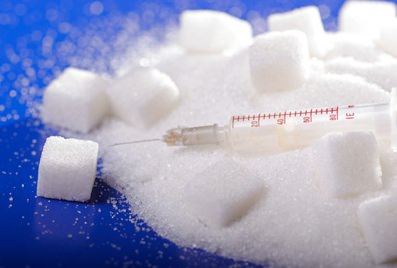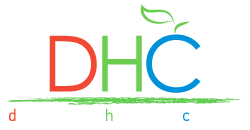 We all take it as read that high-sugar processed foods are bad for us, but who among us hasn’t assumed that it`s only because anything that`s pure pleasure has to be “bad”? That may be part of it, but it`s far from being the whole story.
We all take it as read that high-sugar processed foods are bad for us, but who among us hasn’t assumed that it`s only because anything that`s pure pleasure has to be “bad”? That may be part of it, but it`s far from being the whole story.
Your body needs sugar for energy. When you take in any food that can be broken down quickly into sugars, your bloodstream becomes flooded with it. Your pancreas releases insulin to sponge up the extra sugar, returning your blood glucose levels back to normal.
Back in the caveman days, sugar for babies and toddlers came from breast milk and for adults it came from fruits and vegetables whose starches are broken down into sugars. As we became an agrarian society, we also got sugar from the starches in grains and from dairy products like milk, yogurt and cheese.
All of these sugars are natural and complex carbohydrates that your body breaks down into usable energy, releasing insulin in small amounts to help process the sugar. Some people do not have the ability to produce insulin, those people have type 1 diabetes and there`s no cure for it. For others when they do produce insulin their body does not recognise it, those people have type 2 diabetes which has been shown to be reversible.
In today`s world, when we talk about sugar, we`re talking about refined sugar and starchy carbohydrates. They are largely artificial and your body can`t handle them. When you eat a commercially baked cookie, cracker or cinnamon bun, your body is flooded with simple carbohydrates. Your pancreas releases way too much insulin in response. The sudden lack of sugar in your bloodstream that results from the insulin doing its job can result in a crash and, more importantly for those trying to lose weight, your brain signals your body that it is hungry, even though it is not in calorie deficit.
This constant insulin imbalance can lead to overeating, making you overweight and eventually to you developing type 2 diabetes. Losing weight has been proven to reverse type 2 diabetes, but it`s not as easy to do as most fitness experts believe.
Eating excess refined sugar can actually alter the areas of your brain responsible for controlling your caloric intake. Studies have shown that just being shown a photo of a milkshake causes brain changes similar to those found in drug addicts.
But it`s not just obviously sugary foods and drinks that cause this addiction cycle. Starchy, refined carbohydrates like chips, French fries, bagels and white pasta are broken down so quickly in your body that it reacts the same way it would to a cookie or a piece of cake.
So, if cookies have sugar and cheese has sugar and blueberries have sugar, what`s the difference? The sugar and white flour in cookies are not offset by enough protein or fibre to help slow down how quickly they are metabolised. When you eat a carrot or a piece of cheese, your body has to break down the fibre or protein as well as the sugar. The sugar is released into your bloodstream more slowly, requiring less insulin to handle it. Your blood glucose levels stay steadier.
The good news is that once you, as someone with diabetes, understand that you are battling brain chemistry to break your addiction to sugar and starches, you may not feel so helpless. It isn`t a matter of willpower alone. You aren`t just weak or unmotivated. The craving for sugar is a very real and physical phenomenon.
You absolutely can break the cycle. One study done at the University of Newcastle showed that a severe 600-calorie diet of whole foods and meal replacement shakes reversed type 2 diabetes in just four months. Most of us can`t maintain a diet like that, this is why the Diabetic Health Clinic Lifestyle Program is so important. The program is designed to facilitate a long term dietary lifestyle change.
Eating a whole foods diet based around fresh vegetables and fruits, whole grains like oatmeal, brown rice, whole wheat, barley and quinoa, lean proteins and complex carbohydrates like nuts, legumes and seeds can help your body readjust its insulin response. This doesn`t mean a strict or boring diet. Avoid all white starches and all processed foods and train your taste buds to appreciate fresh fruits and avoid low-fat dairy as the fat is replaced with simple carbohydrates. You will be healthier, feel better and quite possibly also look better.
While you are reversing your type 2 diabetes by participating in the Diabetic Clinic Lifestyle Program and later with a healthy, as grown, whole foods diet, you will still need to monitor your blood glucose levels to be safe.





